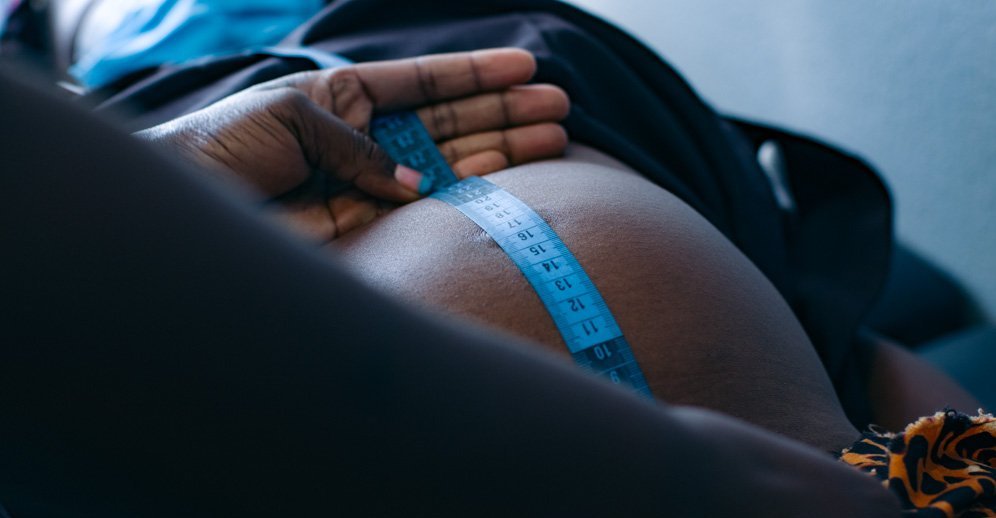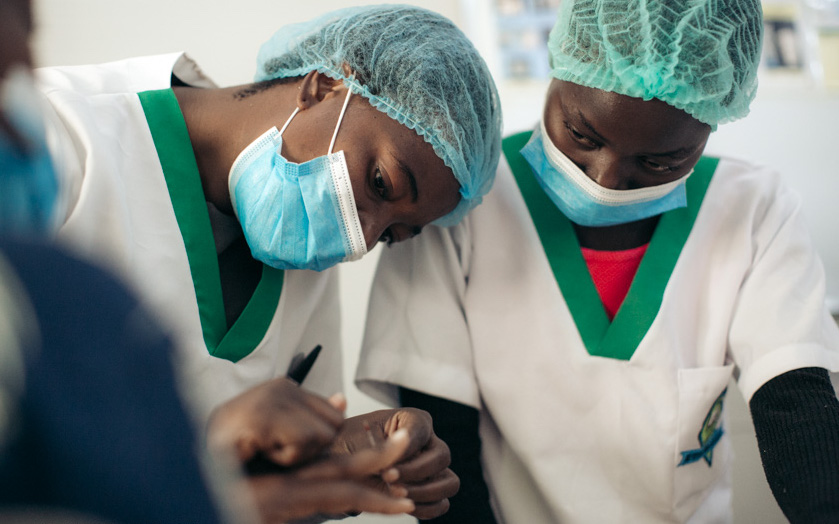MOÇÂMEDES, Namibe, Angola – “Working with women, my biggest challenge is to bring knowledge, because those who do not have knowledge will not be able to do anything. Those with knowledge already know what to do during pregnancy,” said Carolina Manuel Sousa, 42, a third-class midwifery nursing technician in Namibe province, Angola.
There are many mothers with children aged six months or one year who get pregnant right away, because they don't have knowledge [of] family planning.
Ms. Sousa always dreamed of serving her community. Fourteen years ago, she began working as a nurse and today, she is responsible for the delivery room, obstetrics and family planning at the Centro de Saúde do Bairro 5 de Abril in Moçâmedes. She is one of 240 health professionals who benefited from training on the provision sexual and reproductive health services in regions affected by drought.

Strenghtening health services
“The training was beneficial because there are things I didn't do before, such as calculating the gestational age and tracking sexually transmitted diseases. I'm implementing what I learned. With the knowledge I acquired, I trained my colleagues and today, there is more demand for our services,” she said with pride.
With the knowledge I acquired, I trained my colleagues and today, there is more demand for our services.

“My dream is to see more women [having] family planning consultations, because they will have fewer difficulties in being able to support their children. There are many mothers with children aged six months or one year who get pregnant right away. Why? Because they don't have knowledge [of] family planning.”
Today, there is greater demand for family planning as information flows more freely and knowledge of services takes root within the community. After giving birth, many mothers leave the hospital with family planning already in place.
Family planning key to safe birth
An estimated 38 per cent of women aged 15 to 45 in Namibe province want to use family planning but are not doing so. During emergencies such as drought, famine and displacement, the importance of sexual and reproductive health services is often overlooked. This gap in services leads to women having unplanned pregnancies, while in dire living conditions.
The Government of Angola, in partnership with UNFPA and the World Bank, implemented a programme to strengthen health services for pregnant women and children in the regions most affected by drought. An integrated package of sexual and reproductive health services was implemented with the training of 240 health professionals in the provinces of Huíla, Namibe, Cunene and Cuando Cubango.



